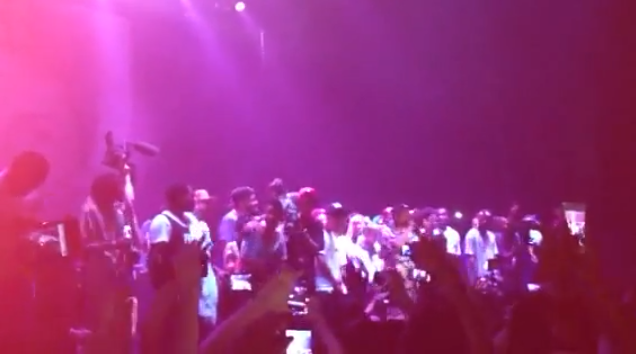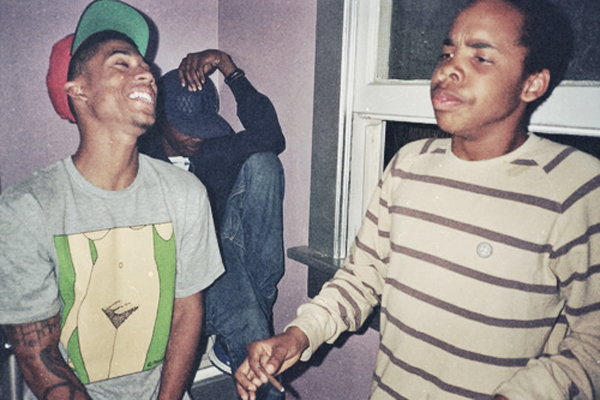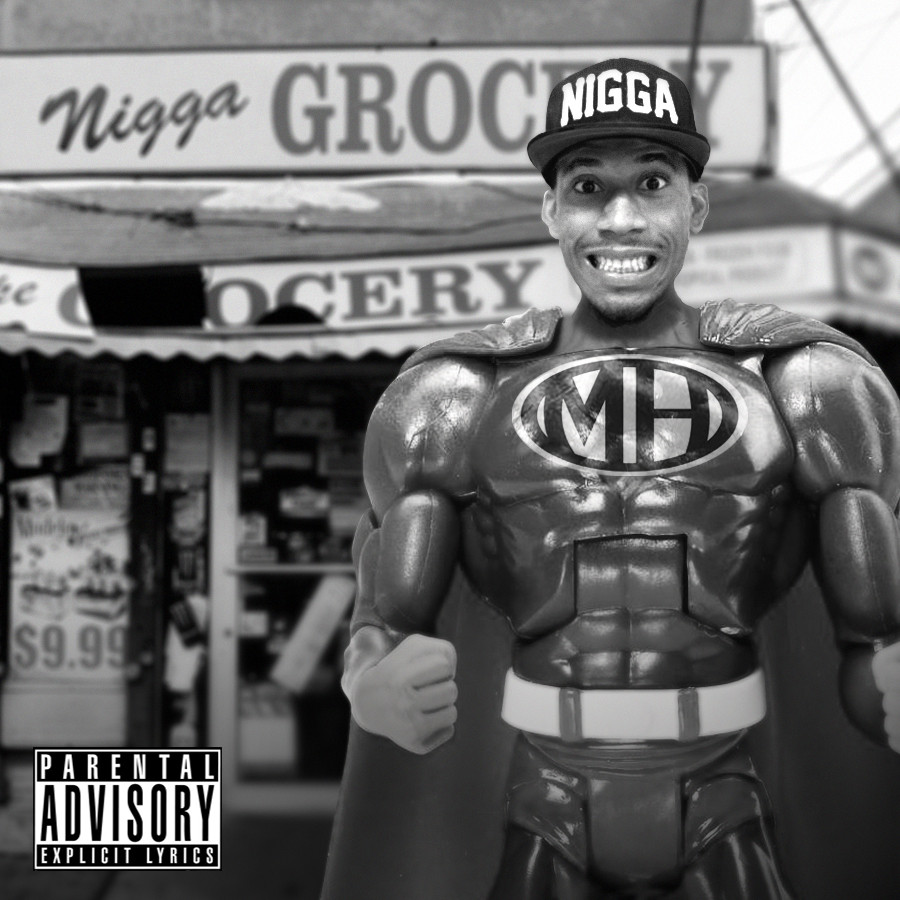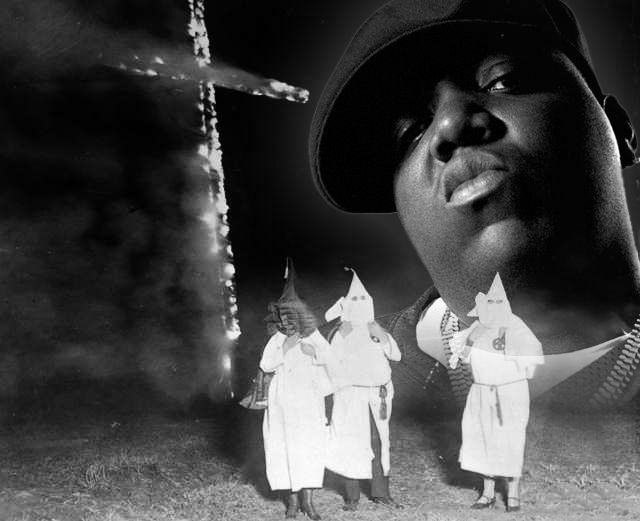
WARNING: The following mashup contains some language that most people would consider unsuitable. It’s not so much the words as it is the context. Proceed with caution (and headphones preferably, if at work).
Hearing this unlikely (and possibly unlikeable) “collaboration” featuring Notorious B.I.G.’s “Sky’s The Limit” paired up with samples and a reprehensible chorus courtesy of the equally reprehensible (and pseudonymous) Johnny Rebel*, one is tempted to ask themselves many questions, most prominently “Why?”
*If you’re wondering who or what a Johnny Rebel is, let me fill you in (follow the link above for even more info). Johnny Rebel is the alter ego of Cliff Trahan, a Cajun country musician who, during the tail-end of the desegregation fight in the South, decided (or was prompted) to write a string of singles celebrating bigotry. The boutique label, Reb Rebel, later compiled this string of singles (with jaunty, delightful names like Some Niggers Never Die (They Just Smell That Way), Nigger Nigger, Nigger-Hatin’ Me and of course, Who Likes a Nigger?, the last of which provides the dismaying chorus in this mashup) into an album entitled “For Segregationists Only,” just in case the song titles didn’t scare off desegregationists looking for a little traveling music. Despite all this, Johnny Rebel claims he “is not a racist.” He “just doesn’t like niggers.” Clear?
This isn’t any normal mashup, aimed towards the fans of the rap (or fans of racism, for that matter). It’s not aimed at enterprising DJs looking to throw a curveball at the dancefloor or towards mashup fans in general. It’s not the sort of track that someone sends around to friends for their appraisal and appreciation.
No, this is the kind of mashup that puts a person in the uncomfortable position of listening to a blatant racist periodically spew hate (which pretty much makes it the only mashup in this category). When the chorus arrives in its horribly amiable fashion, it’s like being kicked simultaneously in the brain and soul. After getting sideswiped by Weakling’s tainted bootleg, we’re definitely different people than we were three minutes ago but we’re still no closer to answering “Why?”
Here’s a few theories:
Juxtaposition as lulz
Trolling mashup fans with an “oh shit he did not just do that” sample.
Juxtaposition as statement (version 1)
Black man trumps white fool. Biggie was big. And rich. Johnny Rebel is still some backwater cracker with a headful of bad wiring and ignorance as long as the mighty Mississippi.
Juxtaposition as statement (version 2 — with complications)
Even slavery and racism can’t keep the black man down. Biggie rose from the hood to the top before his untimely death. Johnny Rebel lives on, all but forgotten. Of course, Rebel may be having the last laugh on this track, being of the mindset that the only good nigger is dead nigger. But it’s a hollow laugh. (Which is probably the only kind of laugh someone like Rebel possesses.)
Juxtaposition as a tale of two clichés
Black rapper. Violent, sexist, obsessed with money, drugs and power. White trash. Violent. Sexist. Racist. Obsessed with whites up and blacks down. Two forms of self-destructive ignorance. Crime pays vs. white bigotry.
Juxtaposition as a much larger statement on rap, racism, inherent violence and various other notions
Johnny Rebel’s chorus vocalizes gunshots as a casual threat to both blacks and the whites who treat them as equals. His “wop bop bam bam” acts as an eerie precursor to the casual celebration of violence (most often against other blacks) that drives mainstream rap. “Wop bop bam bam” is just a forerunner to M.I.A. triggering gunshot/cash register samples in “Paper Planes.” Offhand violence driven by cash enterprise/turf protection.
Juxtaposition as juxtaposition
The “blackest” music ever vs. the “whitest” music ever. Who wins? No one. Or maybe everyone does, drawing their own conclusions and walking away a different person than they were three minutes ago.
Six theories, all of which could be completely wrong, and still plenty of headspace left over to craft half a dozen more. But rather than let this devolve further into Tim Cushing’s Conspiracy Theory Generator and Overthinkery, why not just go right to the source?
Introducing the man behind the spiked (head)punch that is Biggie vs. Rebel, Weakling, who informed me that this track was originally part of bigger project entitled “South by South-west: 100 Years of Racial Tension in Music,” featuring various hip hop heroes rubbing sonic elbows with “bigoted white supremacist Nazi punk.” So, the kind of fun that can only be had by forcing people to play nice (via production magicks) who wouldn’t be caught dead in the same room together. (Or, more likely, someone in that room would be dead shortly thereafter):
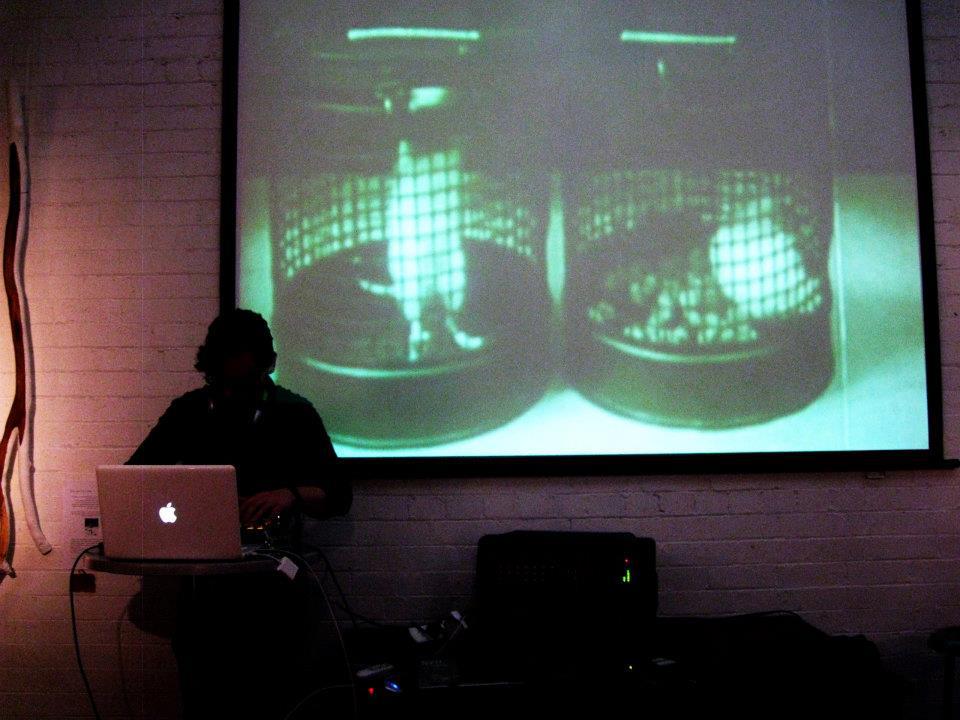
Weakling: I’m a front-end web designer/developer from Queensland. My job is my other passion to music. I’ve spent my whole life around computers which often makes me late for things.
As for this track itself, it’s quite the aural sucker-punch to lay on the average mashup fan. Speaking as one, we’ve come to expect some outrageous or hilarious juxtaposition (see also: Eminem vs. Lawrence Welk, Rage Against the Machine vs. Glenn Miller; Katy Perry vs. Joy Division) but are rarely (in fact, never in my experience) confronted with something as unexpectedly severe as this.
One minute you’re enjoying the masterful mix work, the next you’re trying to collect your jaw from the floor and your shattered brain from various places in your skull. It almost seems like the track should come with a disclaimer attached. Was any part of the creation of this track motivated by a desire to “troll” mashup fans, particularly their tendency to enjoy hip hop more once it’s attached to music that’s “safer” or “whiter”?
Like the ones you listed, mashups are awesome when the tracks come from polar opposites. One of the first mashups I played live mixed Khia’s “My Neck My Back,” Alexisonfire, Public Enemy, Bolt Thrower, a Yo Gabba Gabba song and a bunch of others. I played it at a family-friendly open mic night and there were a few kids in the front row. It didn’t go down as well as I imagined but I had a really great time.
“Sky’s the Limit” was produced to be pretty tongue-in-cheek. I just liked the idea of getting two artists who would never, ever work with each other into a track, even if Biggie wasn’t dead. Mashup music is usually pretty fun with guys like Girl Talk and Yacht Club DJs playing party mixes. I kinda wanted to ruin that and make something a bit uneasy.
How did you come across Johnny Rebel’s music? As far as I can tell, it’s not the sort of thing you just stumble upon without either accidentally or purposefully straying into the uglier parts of the web.
You definitely have to dig deep to find stuff like Johnny Rebel. Movies like Romper Stomper and American History X brought my attention to nazi punk. One scene in American History X, the bigger guy is singing “The White Man Marches On” by Johnny Rebel in his truck and it stuck with me. I illegally downloaded one of his albums (I’m not going to fuel his music career) and listened to it for a few weeks non-stop.
What’s your take on hip hop today in general? (lyrics, production, etc.) Are you a fan? Who of? Who could you do without?
There are some awesome hip-hop acts floating around these days. Some of my favourites are Death Grips, Busdriver, Skepta, Die Antwoord, Army of the Pharaohs, dälek and Mr. Muthafuckin’ eXquire. I’m also a big fan of instrumental stuff like Burial, Nosaj Thing and Daedulus. I don’t get the huge fuss over OFWGKTA. They’re not bad – I saw them when they came to Brisbane last but I don’t get the hype.
The production on Death Grip’s “Ex-Military” opened my eyes. It sounds like it was recorded under someone’s house with a webcam but it really works.
I find it interesting that the word “nigger” still holds so much power when spoken by someone who’s clearly a racist. From my own experience, I can listen to a hip hop artist use it 30 times in 4 minutes without it registering as anything heavier than a comma. But when Rebel’s voice breaks through with the chorus, it’s like suddenly being shoved off a cliff and falling into the ugly underbelly of America. For all the talk of “reclaiming” the word and robbing it of its power, hearing someone use the word with its original derogatory intention still hits hard. It exposes that subset of humanity that will never truly be gone: the hardcore racist.
And it’s not just that subset. There’s a strain that lays under the surface of everyday life. It’s not so much flat out racism as it is simple prejudice. On one of his albums, Chris Rock points this fact out: “There’s not a white person out there who would change places with me. And I’m rich!” It pretty much seems that being poor and white is still “better” than being rich and black. (Sorry. That’s not really a question. But feel free to add any commentary or just ignore my thinking out loud and head to the next question.)
I completely agree, great comment. The context Rebel uses the word in is so much more sinister and defamatory than any black rapper could. As a painfully white guy, I can’t even imagine uttering the word in public.
As an Australian, what’s your perception of racism in America? Does it seem to be a larger problem than Americans perceive it or is it mainly present in the outliers on the edges of normal society? Does Australia have the same problem (or perceived problem)?
I visited the US at the beginning of the year and every city seemed really multicultural and tolerant – race never seemed to be an issue. That’s just an outsider’s perspective though.
Until the 1970’s, Australia had what was called the White Australia Policy, basically an anti-immigration policy for everyone not white, Anglo-Saxon. Australia is an awesome country but there is still some deep, underlying racism in pockets but it’s kept on the down-low. I like to think each generation is ironing out these social problems though.
As for the unfinished project itself, are you attempting to make a larger statement than simply playing off the juxtaposition? I mean, basically, you’re creating a project with a very slim audience. It won’t appeal to hip hop fans, mashup fans or racists, which would leave you a mixture of the curious, the accidental listeners and people who like to think Big Thoughts about music. It’s kind of like announcing you’re going to hammer out an unfilmable screenplay.
You’re right, I can’t imagine the project has a big audience which is fine. It’s corny but everything I’ve released so far is for myself. Every track I’ve finished I’ve released online for free and plan to for all future tapes. I’m sure if I had some big, monetary investment in the project I’d think to make something more commercial but while I can make music in the comfort of home at any time of day/night, I’m going to make things that I like, regardless of who wants to hear it. As a designer, I work in commercial art and Weakling is an outlet for me to explore without thinking about how my work will sell.
Are you planning on trolling white power forums with links to the project? (Because you should absolutely do that…)
Haha, I wouldn’t even know where to start. Kkk.com? I just noticed Google suggests ‘White Powerade’ when you search ‘white power’. I’d better turn SafeSearch off and delve into the dark interweb.
Well, good luck with that (and let me know if you need help trolling). Thanks for your time.
Check out Weakling at his blog, on Facebook and his artist page at Triple J Unearthed. And by all means, swing by Bandcamp and check out his other electronica, all of which is 100% Johnny Rebel-free and, as he said, costs you absolutely $0 to get ahold of.
[P.S. Quick shoutout to DJ Godfather for the post title, which I lifted from one of his “hit” tracks…]


